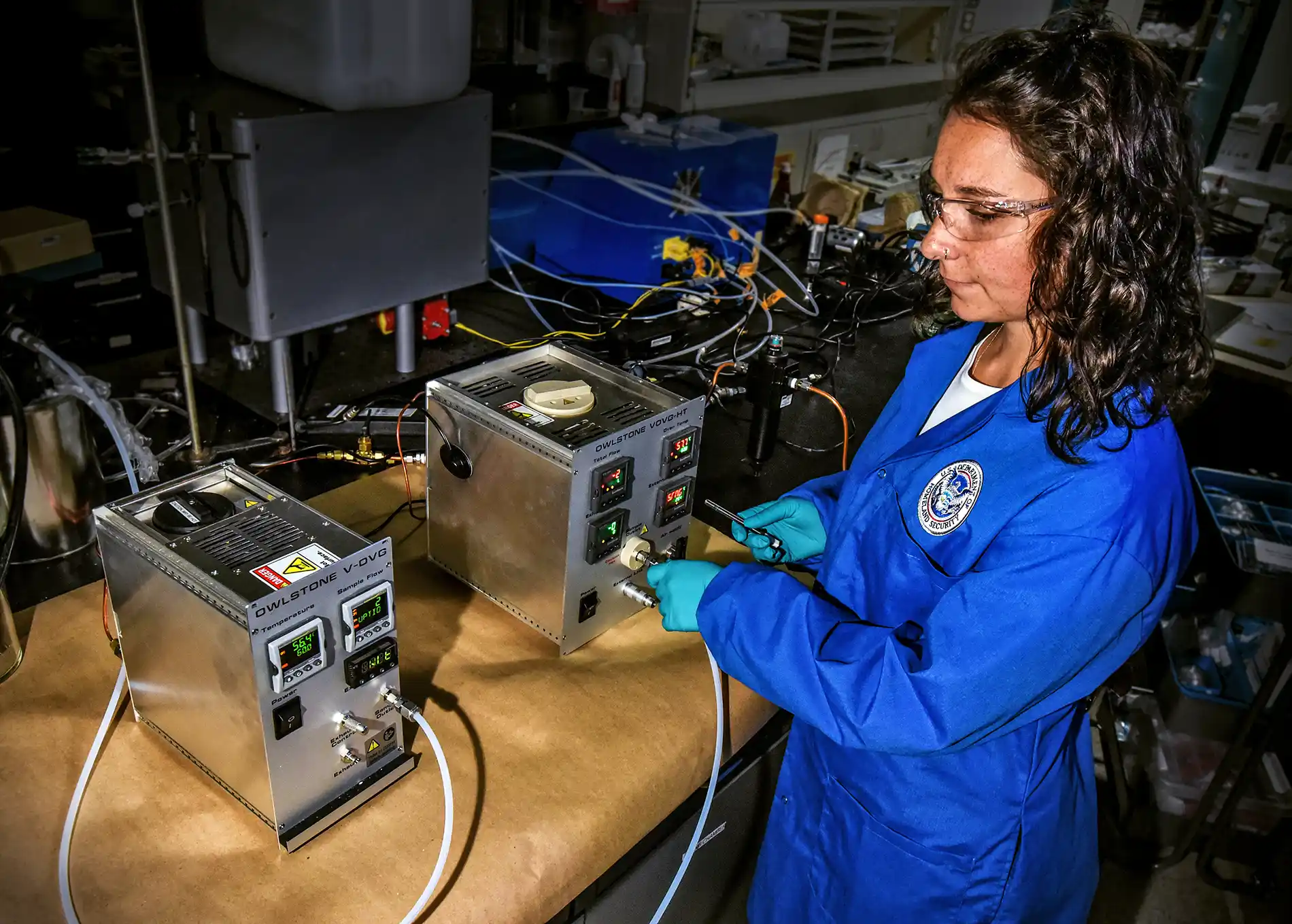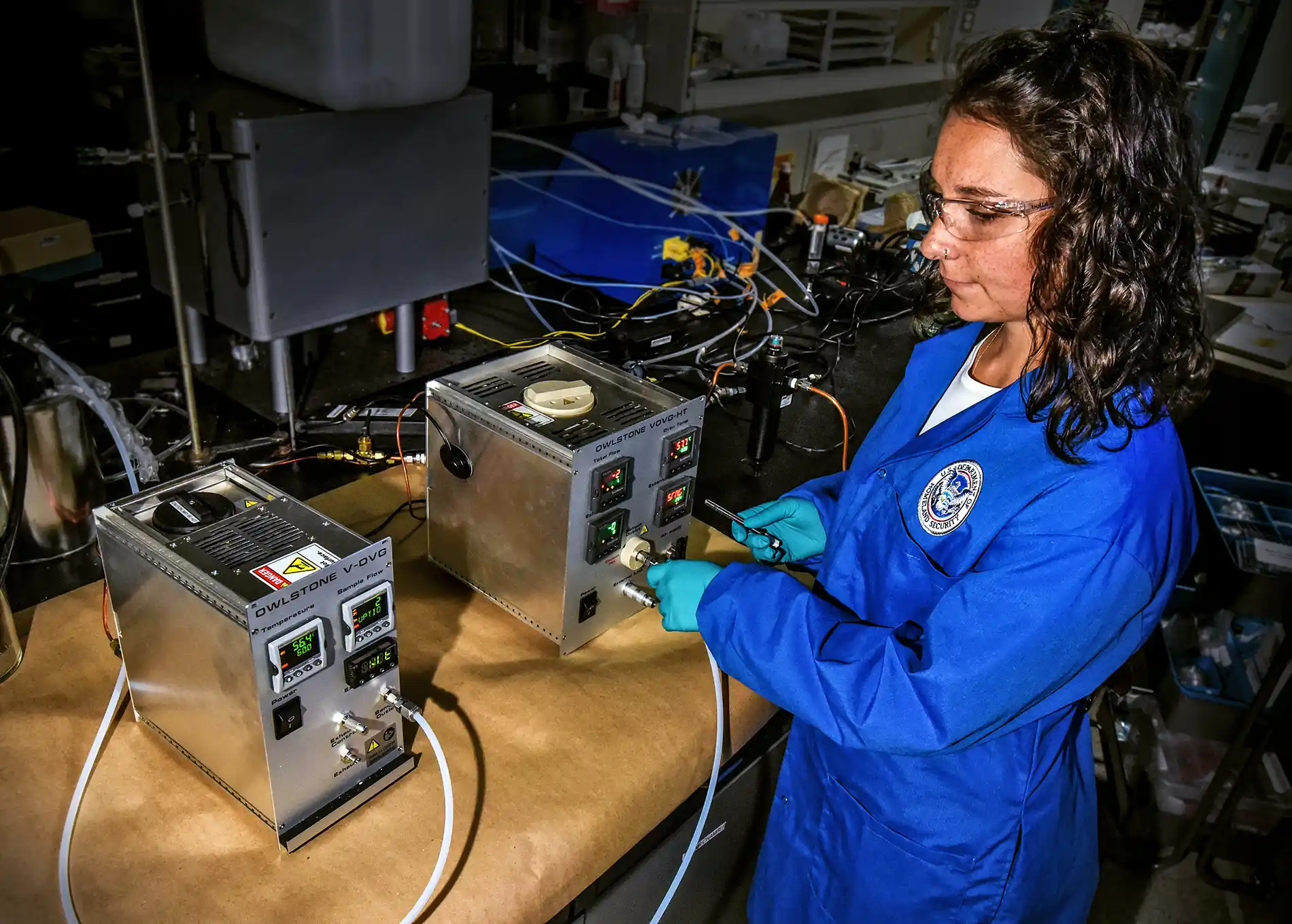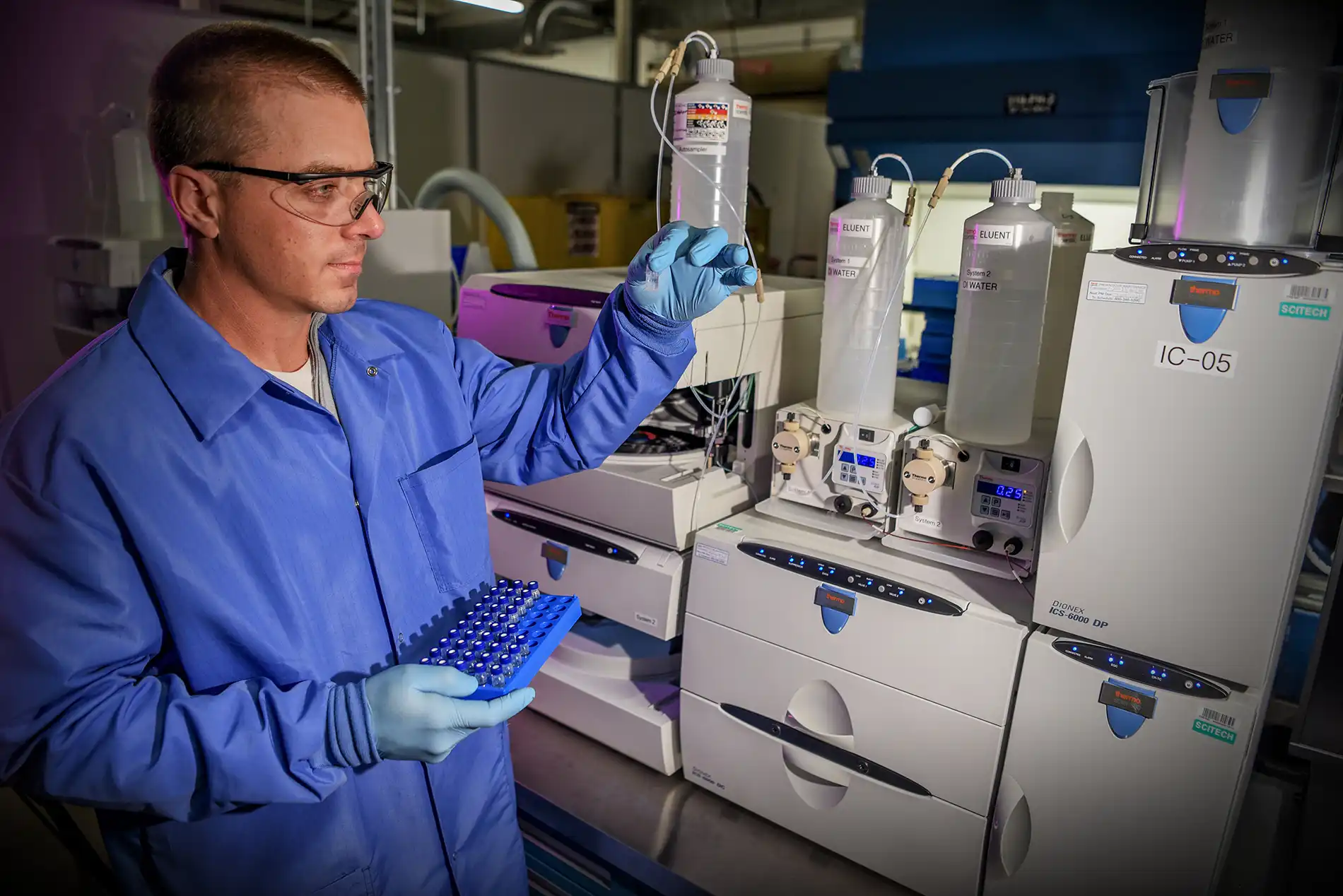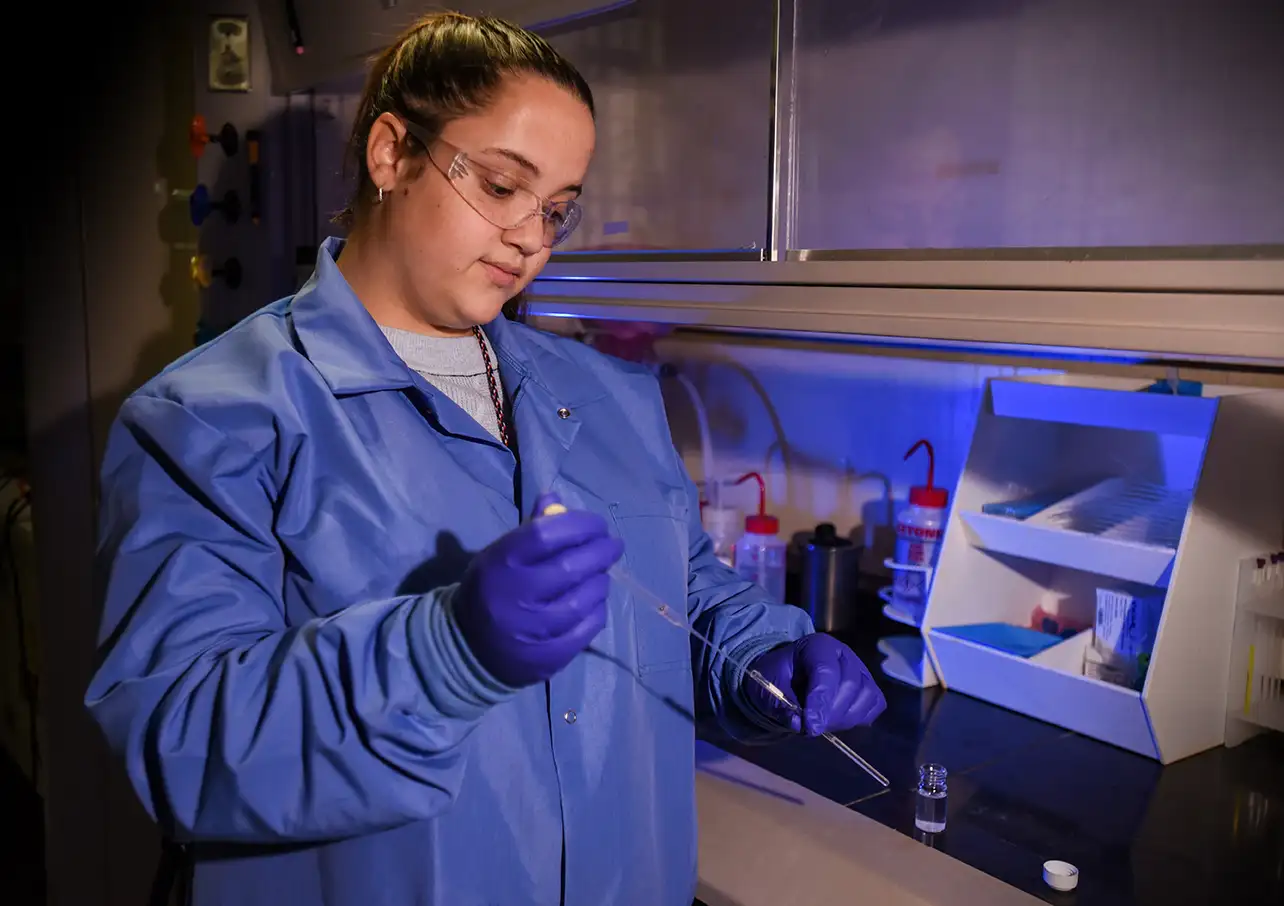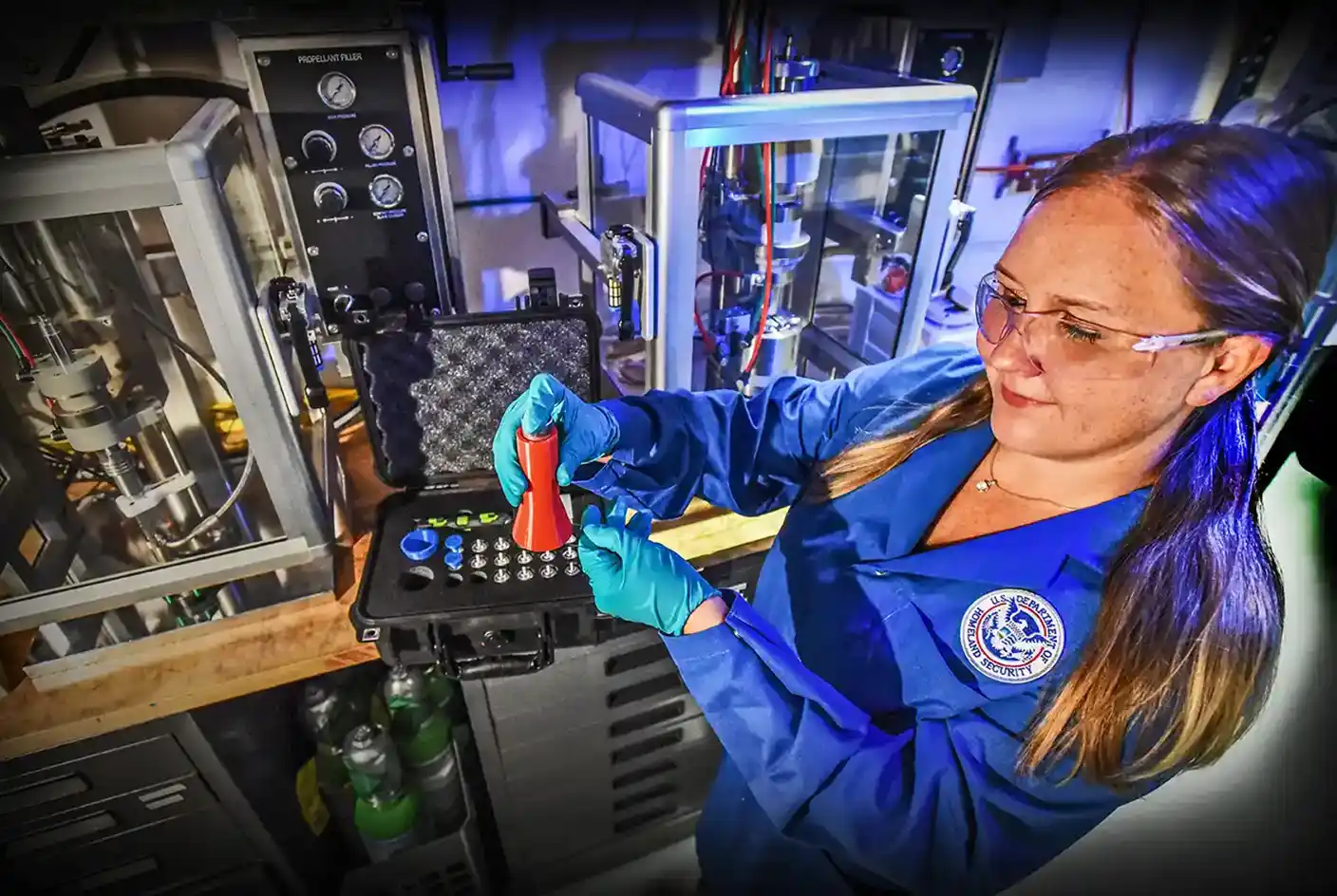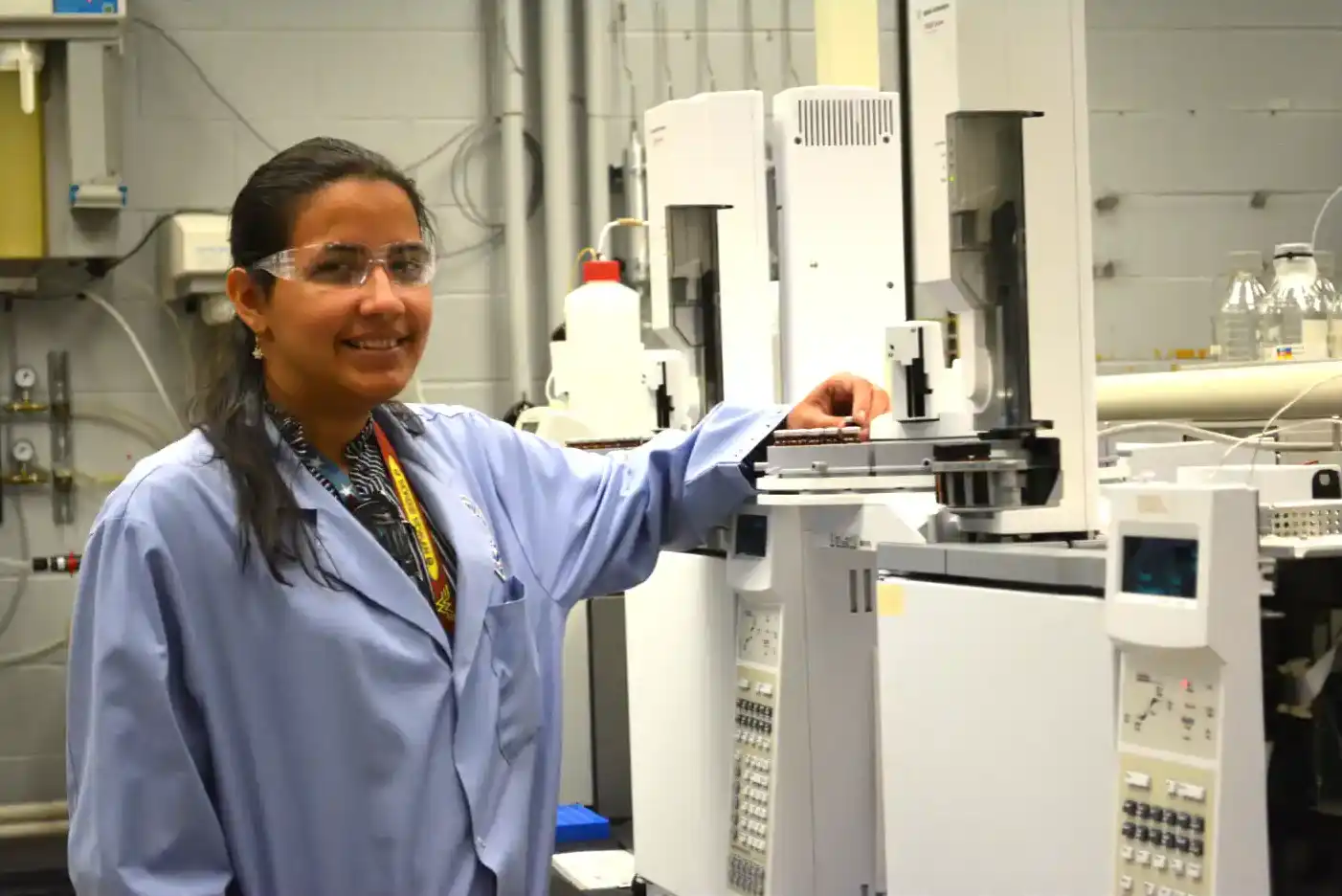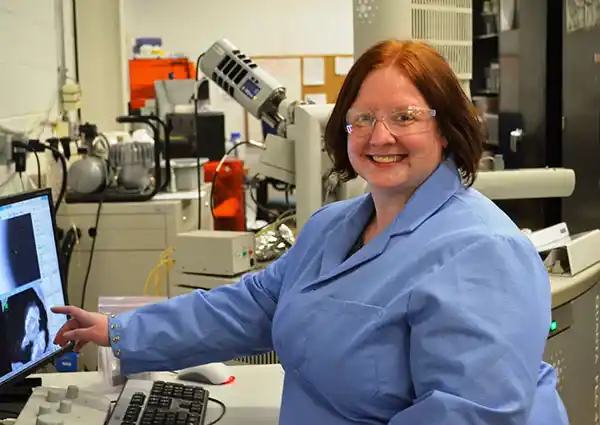Additional Information
Why apply?
Participants in the TSL Visiting Scientist Program will:
- Gain hands-on experience conducting research at a one-of-a-kind federal research laboratory.
- Enhance academic and professional preparation to pursue a career in disciplines that support the DHS mission.
- Have access to unique facilities.
- Join a team consisting of subject matter experts in artificial intelligence, chemistry, engineering, and physics.
- Have access to a unique campus specialized for applied research, testing, and evaluation.
Am I eligible?
The participant must meet all outlined criteria for eligibility to qualify for the TSL Visiting Scientist Program. To be considered for any opportunity with the TSL, you must be a sole U.S. citizen at the time of application. In addition, the educational nature of this program requires that participants must be classified into one of the following categories:
- Students must be enrolled in an accredited U.S. pre-college, college or university pursuing a degree in a science, technology, engineering, or math (STEM), and must maintain satisfactory progress in academic coursework.
- Postgraduates must have received their degree in an appropriate STEM discipline within five years of the appointment start date or must complete all requirements for such a degree prior to the desired start date. If more than five years since receipt of degree, the applicant must have an academic background and experience in a relevant field and must be seeking to gain new knowledge/experience to expand career opportunities or to advance professionally.
- Faculty must be employed at an accredited U.S. pre-college, college, or university.
Selections are made by the TSL mentor after completion of an eligible application in Zintellect. More information is available on the Information for Applicants page.
What will I receive?
- Stipend: Participants receive a monthly stipend to help defray living and other expenses during the appointment. Stipend rates are determined by TSL and are based on the participant’s academic level, professional background, and appointment type.
Participants may also be eligible to receive on or more of the following allowances, depending on the appointment type: - On-site interview: A travel reimbursement for prospective candidates may be offered.
- Relocation: A relocation reimbursement may be provided for expenses for participants who relocate more than fifty miles, one-way, to the assigned hosting site. The participants will be responsible for determining their means of local transportation prior to arriving at the designated host site.
- Housing: Participants are responsible for identifying and securing their own living space and prior to the beginning of their appointment. At the discretion of the TSL, a housing allowance for the duration of the appointment may be offered to a participant. The host facility may aid in locating appropriate housing in the local area (e.g., at a local university).
- Travel/Training: Depending on the appointment type and/or project assignment, the participant may be eligible to receive reimbursement for travel and educational experiences which promote the educational goals of the appointment. Travel may include domestic and foreign travel to professional development experiences, scientific/technical research conferences and professional meetings and other activities.
- Health Insurance: A health insurance stipend may be provided to cover medical, dental, and vision insurance.
Learn more about the major topics our research covers and the programs focused on those topics.

